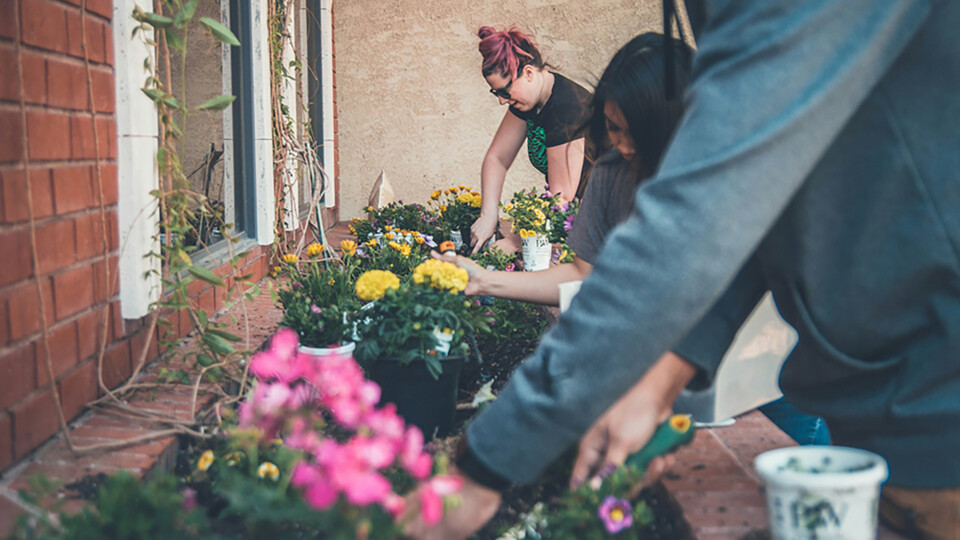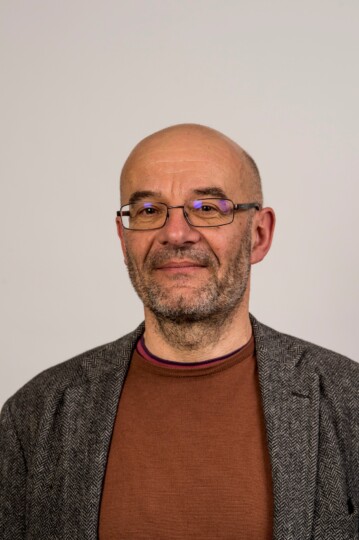Leeds Beckett University research shows importance of community organisations in reducing health inequalities
New research, led by Leeds Beckett University, recommends that national health and arts strategies should include the important roles of community anchor organisations in tackling health inequalities in their areas.
| The research – a partnership between Leeds Beckett University, Locality and Social Life – found that community organisations are able to reach people that statutory services, such as the NHS and employment services, cannot reach – yet they are often missing in health and wellbeing strategies.
The ARCHES project (Arts and Culture in Health Ecosystems) was funded by the Arts and Humanities Research Council (AHRC)’s Health Disparities Programme. The team worked with four community anchor organisations in different parts of England to find out how they are helping to address health inequalities using creative and outdoor activities – from painting and writing to cooking and gardening. The researchers explored how the wider public health system supports the organisations’ activities – and the potential for scaling up their work.
Professor Mark Gamsu in the School of Health at Leeds Beckett University explained: “The effectiveness and impact of action to address inequality through the arts and access to nature could be significantly increased if the role of community anchor organisations was recognised and understood more clearly. “Community anchors are independent, community-led organisations, providing a wide range of activities, services, groups and amenities within a local area. They are an important link between people who often experience inequality and disadvantage – and wider services, such as immunisation and screening. And they foster wellbeing directly through participation in their activities. “At Leeds Beckett, we’ve had a long-term interest in the role community anchor organisations play in addressing health inequalities. Where they are really successful is in building trusted relationships with the people living in their neighbourhoods.” The researchers found that all four community anchors in the project had seen the deepening of trust over time from members of their community who took part in their activities. By creating positive experiences of creative activities, people become motivated to move to another activity and connect to others. This builds long-term trusting relationships which means that, when someone has an emergency need, such as financial advice, they know where they can go for help. The organisations often run their own creative and outdoor activities, as well as using outside experts. For example, Halifax Opportunities Trust uses an external organisation for a wellbeing gardener, and works with the Recovery College on a gardening and wellbeing project. Rather than being competitors with arts organisations, they are developing collaborations and bringing expertise into the community. All organisations reported that health commissioners, such as the NHS, did not understand the impact of their relationship building. Money is often made available for individual projects, such as vaccine delivery or smoking cessation programmes, rather than funding the core work of the organisation. Professor Gamsu said: “Halifax Opportunities Trust identified that their Outback community garden and kitchen is reducing health inequalities as part of their core work – by moving people closer to employment, which has an impact on their confidence, resilience and overall wellbeing. This lack of core funding makes it difficult to plan, increase staff and volunteers, and scale up activities. “We found that, in national arts and health strategies, the focus is around the role of specialist arts and environment organisations. It is vital to recognise and understand that community anchors are specialists at building trusted relationships – and providing the physical space for these services.” Tony Armstrong, Chief Executive of Locality, said: “These findings show the critical role played by community organisations in addressing health inequalities. It provides the evidence for what Locality members know – that trust is the key to reaching those most in need. But trust isn’t inherent; it must be earned. Community organisations have deep roots and are driven by passionate local people – they have an acute understanding of the interests, needs and barriers facing local people. If we are serious about addressing the huge health inequalities we face, we must collaborate better across sectors. This means sharing assets, spaces and resources and building robust, respectful partnerships for the long-term.” Read the report and the full case studies at https://bit.ly/ARCHESreport |


